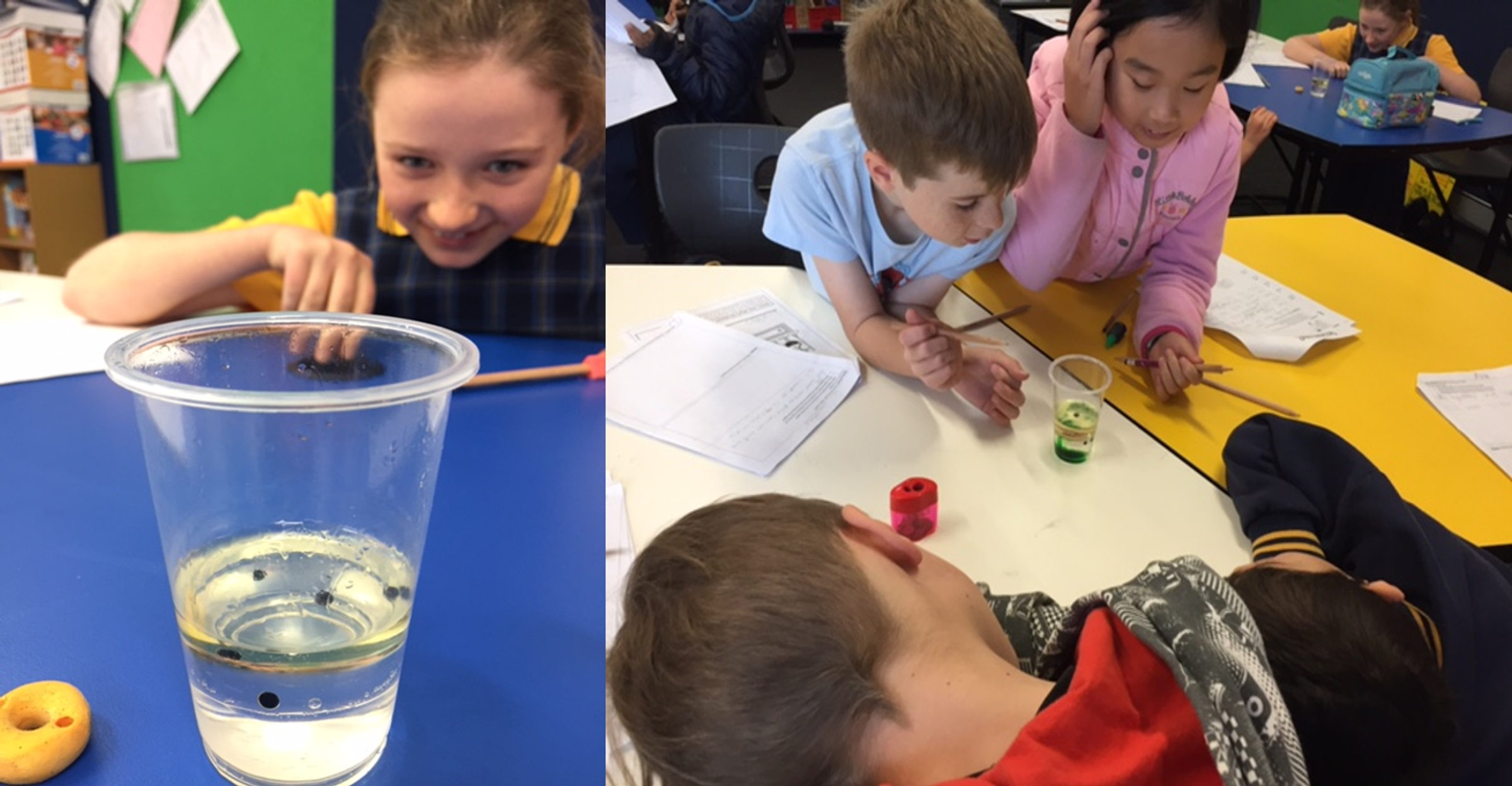Education News

Role Play Reading
At this developmental stage children show reading-like behaviours when interacting with texts such as picture books, traditional tales and simple informational texts. They rely heavily on topic knowledge, pictures and memorisation when reading texts previously heard.
Behaviours you may see are…
- holding the book right way up
- reading their own writing and unfamiliar texts differently each time
- choosing texts mainly for enjoyment
- recognising significant environmental print, e.g. signs, logos, labels
- making links to own experience when listening to or reading texts, e.g. points to illustrations saying “I had a party.”
- talking about familiar characters or people from texts
- recognising their own name or part of it in print
- knowing repetitive patterns in very familiar stories, e.g. Run, run as fast as you can …
- using some book language in retellings and play, e.g. Once upon a time …
- beginning to understand directionality of print, e.g. front to back when turning pages
- beginning to recognise some letters by name or sound, e.g. Sam says “That’s my name”, pointing to ‘s’ in a ‘Stop’ sign
- reading from memory
What parents can do at home to support their child:
- Celebrate reading success. Yes, this includes reading from memory.
- Read to your child every day. Reading aloud helps children expand their vocabulary, appreciate the value of books and other texts, understand new ideas and concepts, and learn about the world around them.
- It is important that words and sounds are not isolated from the text. If they are explored they should be explored within the context of the text.
- Expose your child to a wide variety of texts, e.g. books, magazines, documentaries, brochures, newspaper and comics.
- Books can be read many times so children become familiar with them. Familiarity helps build self-confidence. In fact, it is expected that children re-read familiar text.
- Encourage and praise your child’s attempts to read.
- Ensure your child sees other members of the family reading and talking about their reading. This helps them see reading as something of great value to you.
- Encourage your child to talk about books and their reading with other family members, and promote the love of reading.
- Have children’s books as a high priority in your home. Ask for books to be given to your child as presents, give them to others as gifts. Have a library membership.
Experimental Reading
In this developmental phase, children use memory of familiar, predictable texts and their developing sound/symbol knowledge to match some spoken words with written words. Experimental readers are focused on understanding and conveying the meaning of these texts rather than reading all words accurately. They read and comprehend texts with repetitive and known vocabulary and supportive illustrations.
Some of the reading behaviours you may notice include, when your child…
- realises that print remains constant, i.e. that the words of a written story stay the same
- focuses on making meaning of a story rather than on reading words accurately
- uses their prior knowledge and personal experience to make meaning of text
- matches some spoken words with written words when reading a book or environmental print e.g. advertising signs, stop signs etc
- knows that print goes from left to right and from top to bottom of a page
- recognises a word as a unit of print with space on either side.
- shows one to one correspondence between spoken and written words, e.g. may begin pointing to words as they are reading from memory.
What parents can do at home to support their child:
- Continue to have children’s books as a high priority in your home. Ask for books to be given to your child as presents, give them to others as gifts. Have a library membership. Keep promoting the love of reading.
- Read to your child as often as you can, try to make it part of your daily routine.
- Encourage and allow your child to select the text. Put aside a book if your child has lost interest and choose another.
- Talk about the pictures when reading to your child and give them time to look at illustrations before turning the page.
- Answer your child’s questions even if it interrupts the flow of the story.
- Encourage your child to join in when reading familiar stories.
- Encourage you child to read to you, or to the cat, a little brother or sister.
- Continue to support the reading of a familiar book. Remember, familiarity helps build self-confidence and fluency.
- Accept your child’s efforts. Always encourage and praise their efforts.
- Encourage your child to look at the title and cover of a book and guess what it may be about.
- Encourage your child to tell the story from the pictures in the book.
- Talk about the characters, plots and settings of stories, e.g. “Which was your favourite character? Why”
- Encourage your child to express opinions about texts.
- Compare the people and events in books with those in your own lives.
- Tell stories and sing songs in the car, at bath time, at bed time.
- Talk about environmental print, e.g. jars, cereal boxes.
Creative Arts
Our Foundation, Grade 1 and 2 students have been busy over the last few weeks in Creative Arts. Students have created dots inspired from the book The Dot by Peter Reynolds and self-portraits from the Todd Parr books. During these sessions, students have been exploring water-based textas and poster paint. Great job Foundation, Grade 1 and 2 students!
Social Media - Instagram
We have launched our new MPW Instagram profile. Please follow us at @mpwpsofficial

